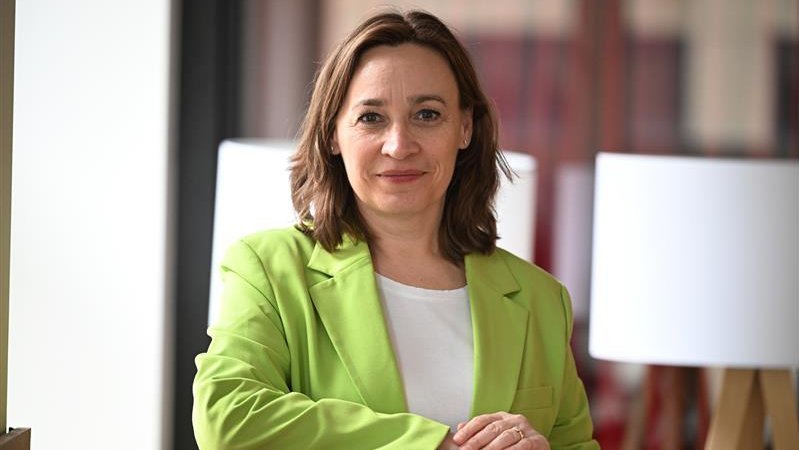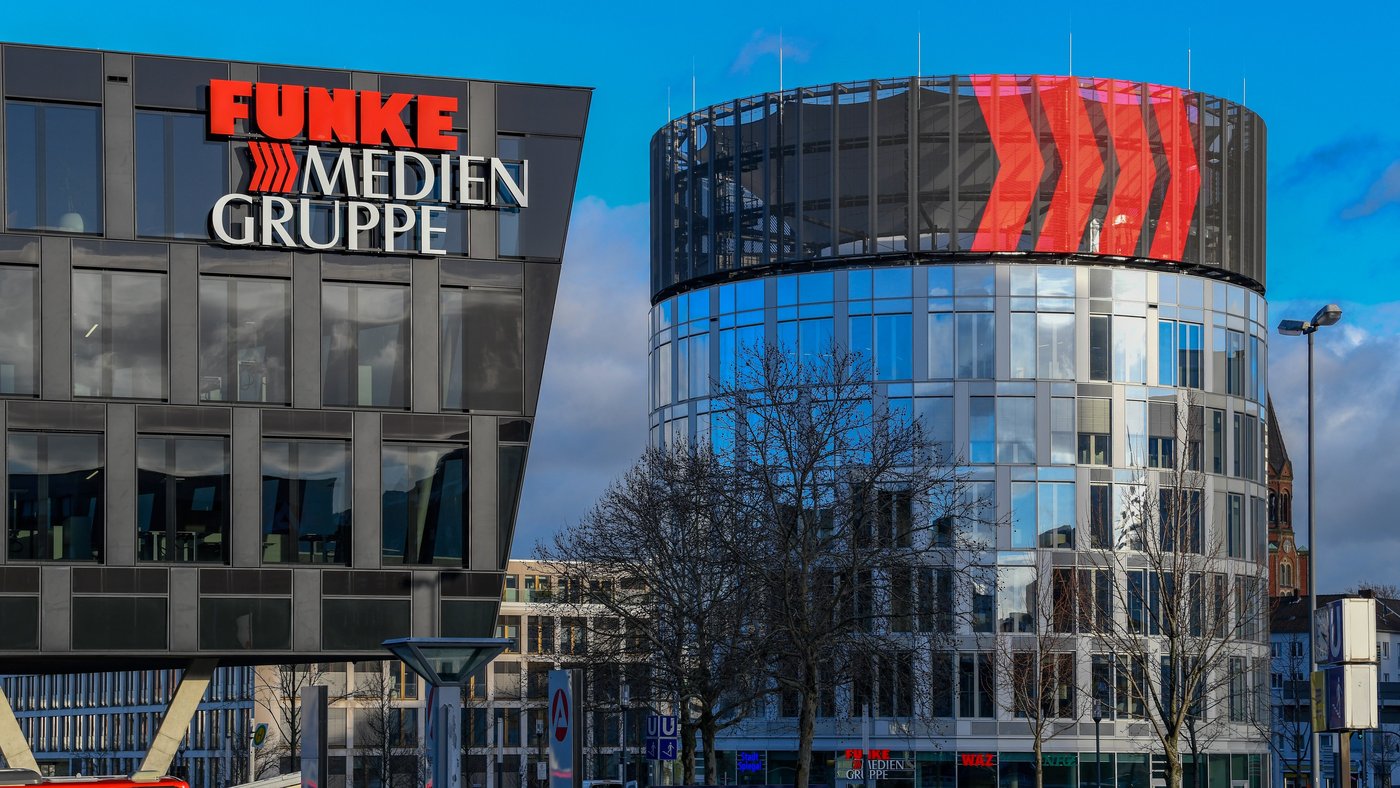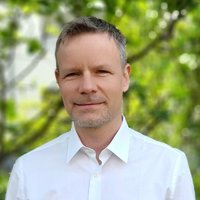The FUNKE media group has just won the German Sustainability Award. What adjustments is the company making in terms of ESG? And how is it financing its transformation? Questions for Head of Sustainability Gundula Ullah.

Ms. Ullah, FUNKE stands for daily newspapers such as WAZ and magazines such as HÖRZU. Can print products - which are disposable items - actually be sustainable?
Gundula Ullah: Well, first of all, the purpose of our products is very sustainable in a social sense: we bring information to the citizens. Whether we do this on paper or on a cell phone is irrelevant. However, print products are better than their reputation when it comes to environmental sustainability: we print our daily newspapers on recycled paper that can be recycled up to seven times. If you compare the emissions of a printed newspaper with the use of e-papers on the iPad, the CO2 balance does not always favor the iPad.
FUNKE produces 50 magazines, 12 daily newspapers and around 200 online portals. In which area is the need to become more sustainable greatest?
We don't limit our activities to one division or one product. We are working on reducing the ecological footprint of all our media channels. Of course, this is much easier with print: there are the adjusting screws of paper, printing and logistics. With online, the value chains are more complex: the display of ads via a website, the bidding process for online advertising spaces, the production and consumption of end devices and much more. Understanding where emissions are generated is more challenging than with printed products.
Since when has the topic of sustainable transformation played a role in the company?
The topic has never been unimportant. Many areas at FUNKE have been dealing with it for a long time out of intrinsic motivation. The official go-ahead for the Corporate Sustainability department was given in 2021, when the printing department, for example, had long since been certified for ISO 14001. Logistics had also already optimized its routes. It had always been anchored in the organization in one way or another. When the shareholders then said that the topic of ESG was very important to them, things really took off.
Most companies focus on the “E” of ESG - the ecological aspect. What is it like at FUNKE?
With “E”, we want to reduce the environmental footprint in our value chains and in our media companies. We are also working with our suppliers to reduce emissions.
And what is the focus of “S” and “G”?
To drive forward the “S” dimension, we established the Cultural Affairs department in 2024. Here we look at diversity and inclusion and, for example, questions such as: How do we deal with care? How do we support employees with physical or mental disabilities? Governance is about being compliant with all reporting obligations and regulations. For a group like us - with a turnover of one billion euros - this is of very high economic relevance.
A large proportion of your emissions are generated in the supply chain. How do you approach your reduction targets here?
Over 90 percent of our emissions are generated in the value chain. That's why we are in constant communication with our suppliers about the relevant issues. It's not just about emissions. It's also about mineral oil-free printing inks, occupational safety and health and safety at work.
Keyword mineral oil-free printing inks: How do you check this?
By checking the manufacturers' data sheets. The challenge is not so much the control as the price: mineral oil-free printing ink costs around 30 percent more than conventional ink. We adhere to a voluntary commitment by publishers to print a certain proportion of our products with it.
How do you finance such investments in sustainability?
We are fortunate that the Group management sets a climate budget every year. This can be used for measures in various areas. For example, to compensate for the higher price of paper resulting from feeding green electricity into the paper manufacturing process.
Why is green electricity more expensive? Isn't it already cheaper than “normal” electricity from many suppliers?
Paper manufacturers purchase terawatts of electricity, often years in advance - known as “hedging”. If green electricity then needs to be purchased at short notice, this is done on the spot market, where the electricity is traded at the daily price and is therefore much more expensive.

What sustainable business model is FUNKE aiming for and by when do you want to have taken which steps?
According to the CSRD, we must have a clear emissions reduction pathway by 2045. We have calculated this and broken it down by sector. For example, we have used this to determine when we have to switch our company car fleet to electric drives. For our media companies, we have defined the goal of reducing emissions by 90 percent by 2035. And in the value chains, we want to become climate-neutral from the tree to the letterbox.
While you can make changes yourself as a company in Scope 1 (direct emissions) and Scope 2 (emissions from energy consumption, for example), you are dependent on suppliers for Scope 3 (indirect emissions from downstream supply chains, for example). How do you deal with this?
If the paper manufacturers tell me that they only want to be climate-neutral by 2045, we as a publishing house will obviously not be able to achieve this by 2035. That's why we haven't set ourselves a time target for the value chains, but are supporting them with active measures. For example, we are calling on paper and print manufacturers to use green electricity for the production processes that affect us.
Has there ever been resistance in the supply chain - and how do you deal with it?
You have to keep communicating and explain that sustainability is not a nice-to-have, but an economic must. Our advertising customers and media agencies demand that we comply with ESG scores. But in my view, transformation only works in constructive cooperation. We see this as a joint project that we are tackling together with our suppliers.
What about the delivery of print products? Have you converted to e-vehicles here - or are these emissions outsourced to service providers such as the German Post?
We are already using e-vehicles or e-bikes for the delivery of daily newspapers in some delivery areas. However, the vast majority of our delivery staff are still using combustion-powered vehicles. The limiting factor for a more widespread roll-out here is, among other things, the insufficiently developed charging infrastructure and the range of electric vehicles under full load. We participate in Deutsche Post's “Go Green Plus” program for the delivery of our magazines.
How many media houses does FUNKE have - and how are you reducing the CO2 footprint there?
We have a total of six media companies and many readers' stores, with a total of around 220 locations across Germany. It's important to stay in contact with colleagues from the specialist departments and define measures. We have already managed to switch to green electricity everywhere. Some locations are also leading the way and demanding things themselves, such as charging points for e-bikes or e-cars.
Heating the locations is another point - what have you changed here?
The main source of energy for our locations is gas or district heating. As we rent our locations - with a few exceptions - switching the energy sources for heating is only possible with high investments. However, one lever is consumption itself, and here we have learned from the measures taken during the energy crisis and, for example, adjusted room temperatures to reduce consumption.
Does sustainability play a role in the awarding of contracts?
Sustainability is an evaluation factor in the awarding of contracts. We have developed a “Cost of Sustainability” sheet for purchasing, in which sustainability criteria are queried. If the supplier says “yes” to everything, they achieve one hundred percent, otherwise they receive a penalty. This gives the department a criterion in addition to price when making investment decisions.
How does it work the other way round: when FUNKE gets loans from a bank for investments - are sustainability criteria required?
FUNKE currently only has one major loan. For the first time, we have linked the financing with an ESG component and can therefore also anchor our ambitious sustainability goals in the financing agreement.

FUNKE was the first national media company to publish a sustainability report based on CSRD as early as 2024. You are not obliged to do so until 2026 - and according to the omnibus process probably not until 2028 - why did you do this?
Quite simply: to practise. CSRD is so complex and the requirements are so high that a report like this cannot be produced overnight. The double materiality analysis alone took us six months. It was also difficult to find out where we could actually obtain the required data. That's why we started a little earlier and prepared the first report - as a kind of exercise - by analogy.
Would you say that data collection helped you make progress with the transformation? Or was it mainly a bureaucratic burden?
You always learn something through data collection - for example, where there are still gaps. That's why I think it's fundamentally very good to create transparency. Companies have to be honest - also in the supply chain, i.e. in Scope 3. But the bureaucratic exercises that the CSRD imposes on companies - and I haven't mentioned the EU deforestation regulation EUDR yet - are often greatly exaggerated. My team spends most of its time fulfilling reporting requirements. But we should actually be working on becoming more sustainable.
You have succeeded in doing that: According to the last sustainability report, FUNKE was able to reduce its CO2 emissions by almost 48,000 tons in 2023 - that is, by around 23 percent compared to 2022. How did you achieve this?
Firstly, by improving data quality: in the beginning, we relied a lot on standard emission values. It is now clear to us that the emission values can vary completely depending on the paper mill and paper roll, depending on the energy mix of the paper mill and the manufacturing process (recycled or virgin fiber) - standard values do not help here. And we have taken some active measures to reduce emissions.
Sometimes the problem is that suppliers don't have the data they need: How were the paper mills able to collect and supply the data?
Overall, this was relatively quick, around three to four months after the request, as the paper manufacturers have to report the CEPI values anyway and record this in certificates. Requesting and validating these meant a little effort, but it was easy to implement.
You talk about active measures to reduce emissions: which ones specifically?
For example, we have switched to green electricity in our own printing plants and in our media companies. And we have allocated more tonnage to paper suppliers who have a particularly good CO2 footprint.
Where do you see the greatest opportunities for FUNKE in terms of sustainable transformation?
One opportunity is to set ourselves apart from other media companies in terms of advertising volumes through sustainability. I also see an opportunity to establish sustainability as a business model. That's why we founded the FUNKE for Future Academy, where we pass on our knowledge of ESG to other companies - especially SMEs. The consistently positive response from our participants shortly after the launch confirms that we are on the right track with this offer - from practice for practice.
And where are the biggest risks?
In the fact that sustainability departments are turning into super-controlling centers due to the rampant “reporting game”. And that this results in less impact. Another risk is that new EU legislation throws the baby out with the bathwater if the targets are lowered too much. So what do companies like us, who have invested a lot and are making good progress, do? We have bought licenses for two ESG software packages, built up our workforce and made a lot of investments. Postponing everything until 2030 is not an option.
About the company
The FUNKE Media Group, headquartered in Essen, is one of the largest media companies in Germany. In line with its vision of “journalism for an open and informed society”, the company produces daily newspapers, magazines and online portals. The Corporate Sustainability department was founded in October 2021, and today three employees work in the department alongside department head Gundula Ullah. FUNKE has set itself clear targets in all ESG dimensions: For example, the media companies are to be CO2-neutral by 2035. The company has recently received awards for its commitment, such as the German Sustainability Award as a pioneer of sustainability transformation in the media industry and an award from the World Printers Summit 2024 in the “Going Green” category.
